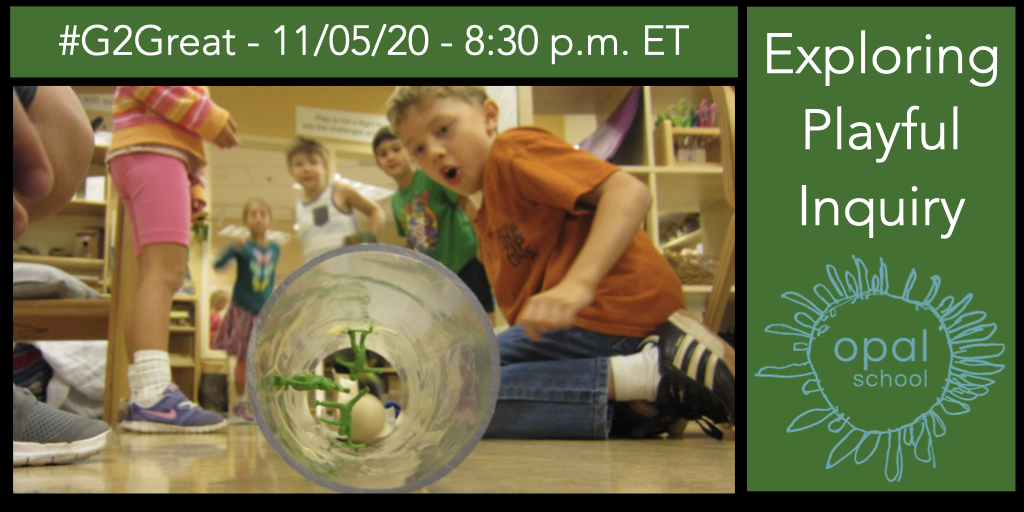
By Brent Gilson
For a record of the chat check out the Wakelet here and if you are interested in learning more about the work Matt Karlson (@matt_karlsen) and Susan Harris Mackay (@sharrismackay) are doing at Opal School please check the link The #G2Great team are so grateful they were able to join us this week.
It is funny when I think back to my times in school from K-12 I remember the times I was free to have fun, to wonder, to explore to be curious and to pursue the learning I was interested in. Those moments are still so vivid even in some cases 30 years later.
As we started the chat this week participants shared what they felt were the unique gifts of childhood and as teachers how do we honour them. Here are a few of the responses.
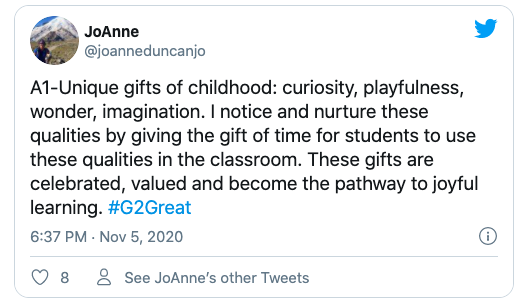
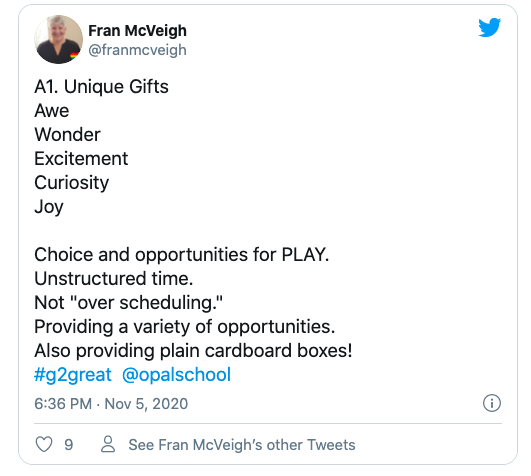
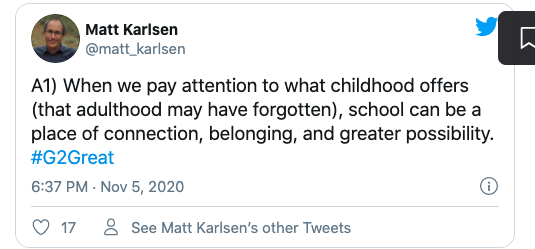
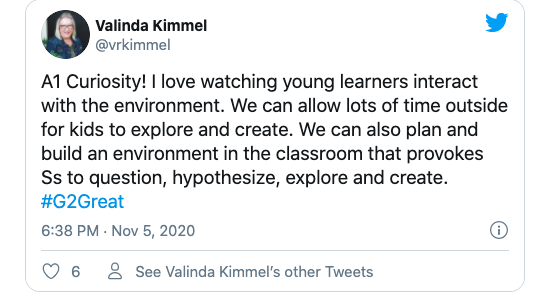
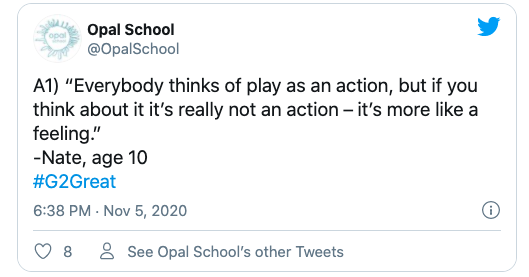
All week I have been pondering the times in my life that I was free to do these things as a student. So I wanted to treat this post as my own love letter to playful inquiry and inquiry in general and the teachers that fuelled my most powerful learning experiences.
Grade 2 Mrs. Anderson
I remember in Grade 2 we were studying life cycles and wetlands. We could have just spent our time looking at overhead transparencies of a frog and butterfly life cycle and doing some colouring sheets. However, Mrs. Anderson had different plans. She packed up this group of 2nd graders and we went to the local wetlands armed with nets and buckets and spent the day exploring. We caught bugs and freshwater shrimp, tadpoles and frogs at different stages of development, we brought them back to class and studied changes. I still remember where the tank sat in the classroom and the toad I caught that got out and was found on another students desk after recess.
Grade 5 Mrs. Fast/ Mrs. Ness
Studying plant life was scavenger hunts and exploring nature at a Provincial Park. We did have a booklet to complete but it was more like a field book to collect samples and different leaf rubbings to describe what we were finding and identify different plant life we encountered. We could have done it all with simple worksheets but through allowing us to run, play, explore and wonder our teachers had 30 Grade 5 students engaged for a whole day and I can still remember moments from that learning experience.
Favourite Teacher Mr. Soetaert Grade 8 Science
There is that one teacher for so many that makes school more than just a place but an experience. Mr. Soetaert was that teacher for me. He allowed use to explore our interests. In one instance I had an acquaintance bring me a frog they had caught for me (my frog obsession is real) but in the process of capturing it had broken the poor amphibians leg. I asked my teacher if he thought there was anything we could do and we started researching how to induce hibernation, freeze the frog, amputate the leg, cauterize it and then wake the frog up good as new, well minus a leg. Now of course my teacher was fully aware that we could not do this and that the frog would die but he didn’t shut down my wonder or curiosity. He let me explore and look at the potential ways we could save this frog. He didn’t dismiss me and tell me we had “more important things to learn”. He let me learn. The frog died but my curiosity grew and I will never forget that learning experience.
Play and Democracy
Too often teachers brush off play as just “something fun” or “extra”. As the chat continued participants reflected on the relationship between play and democracy.
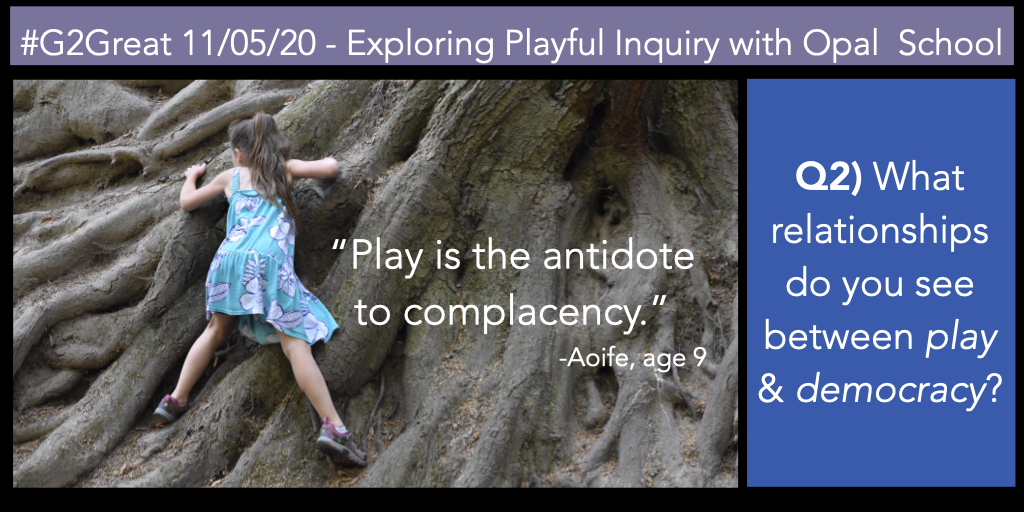
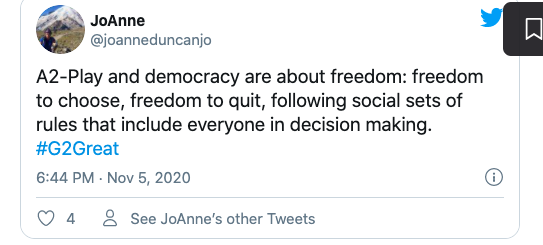
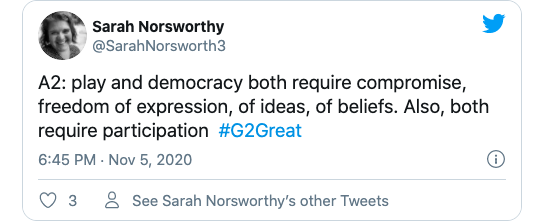
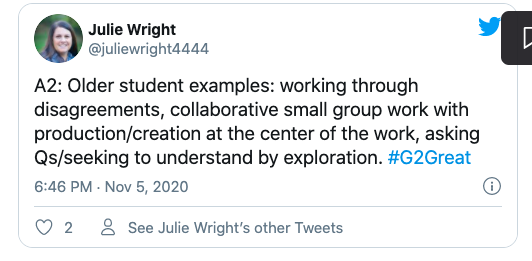
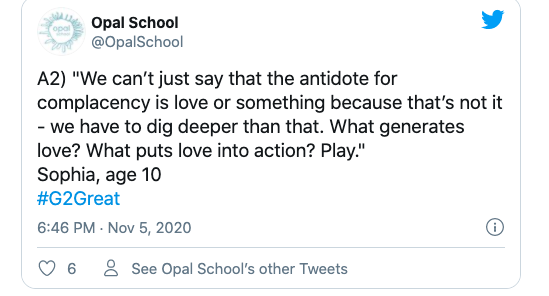
These common threads of freedom, collaboration, creation, compromise. They all come from play and are important pieces to reflect on not just as our students make their way through school but also going out into the world. We need our students to be prepared to question, to push back on injustice, to speak out when they think there is a better way. Because without that, when our students just conform and become compliant we end up with something else.
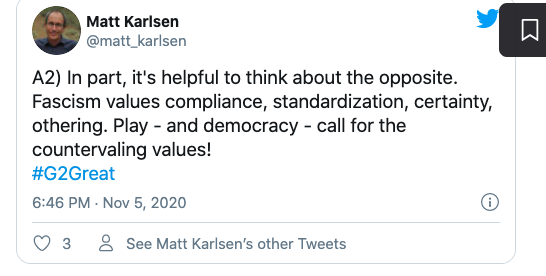
Fostering World-Makers
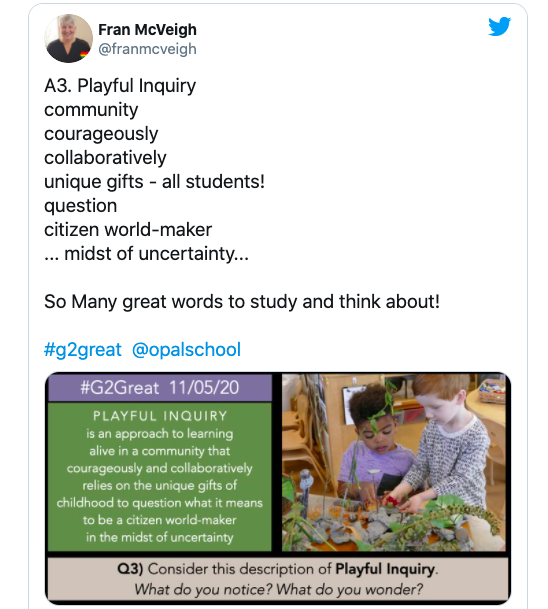
As I read this quote on playful inquiry I focus on “citizen world-maker” and can’t help but think about these last few years and the youth of the world that have refused to be compliant and how they are being given or just taking the opportunity to question, to challenge, to push back and to lead. They are becoming the leaders of change movements. They are pursuing their goals and fighting to achieve them. As we look at classrooms that are built around playful inquiry I can’t help but notice these qualities our youth activists display are first modelled and nurtured in these settings. The skills our students learn in these playful inquiry classrooms indeed are the skills they will need to make the world a reflection of their values.
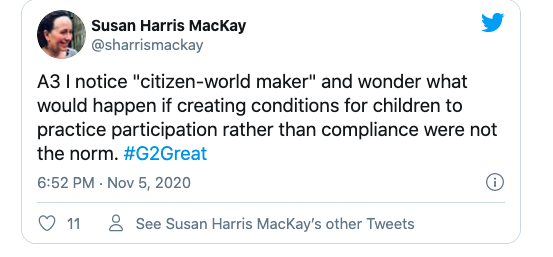
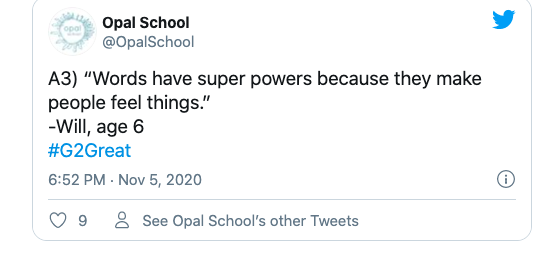
What if?
Reflecting on this chat I can’t help but wonder,
What if we shifted our focus? What if we put more value on students exploring learning than we did formally assessing it? What if we allowed our students to create their curriculum? What if their interests guided our teaching and not the other way around?”
How much more engaged would our students be? How much more prepared would they be for the world they are in and one day will be asked to lead?
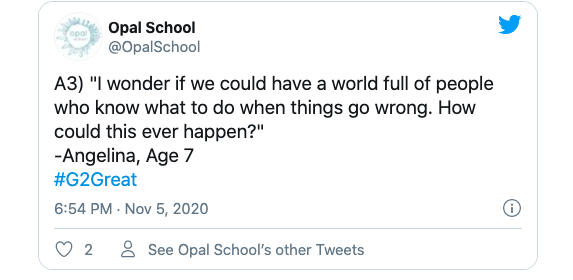
Hello, I am student and am halfway to becoming a teacher. This article is such an awesome reminder for teachers to remember as the child stated above,” Play is not an action, it’s a feeling.” What are ways a future teacher as myself , can incorporate in my class to make play an intentional feeling with meaningful experiences?